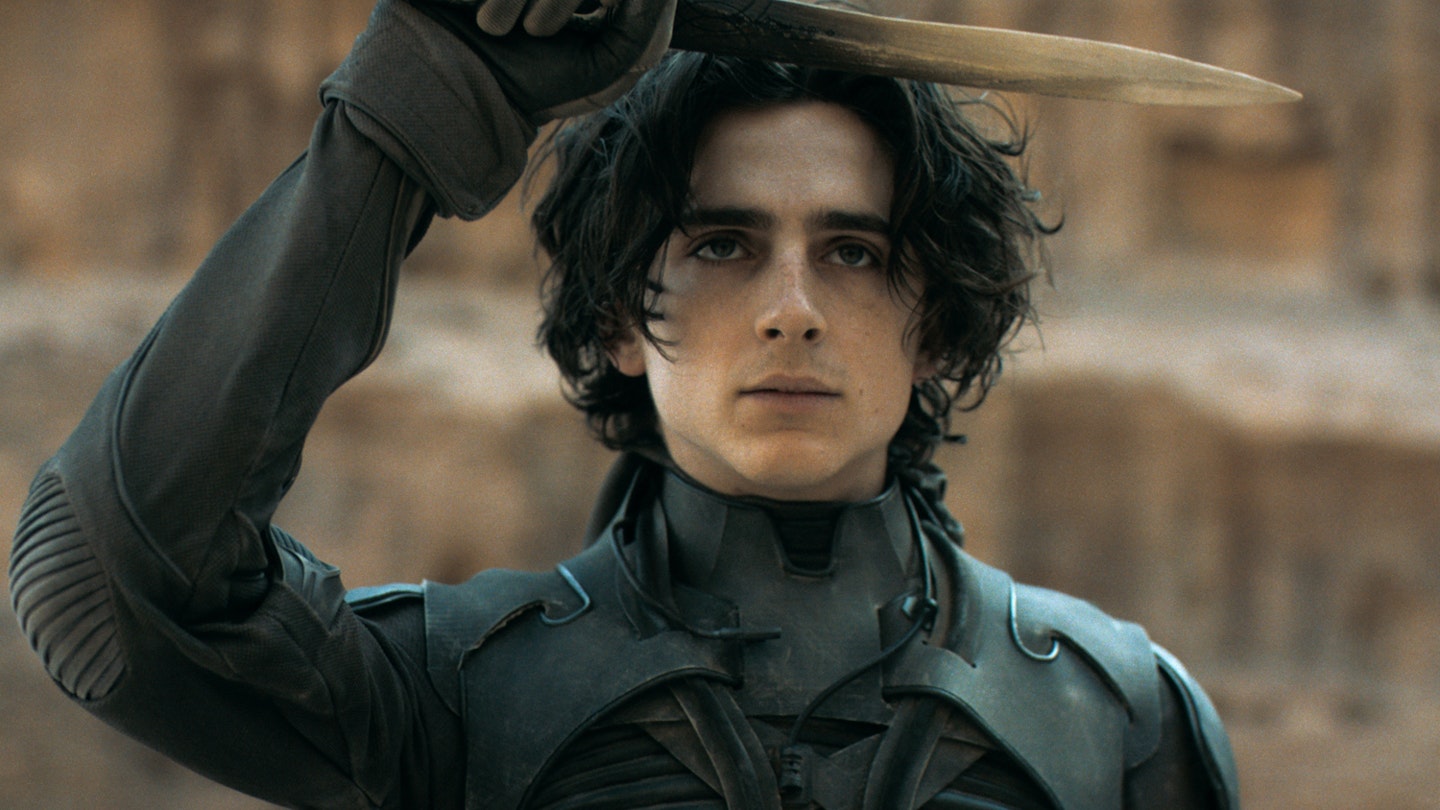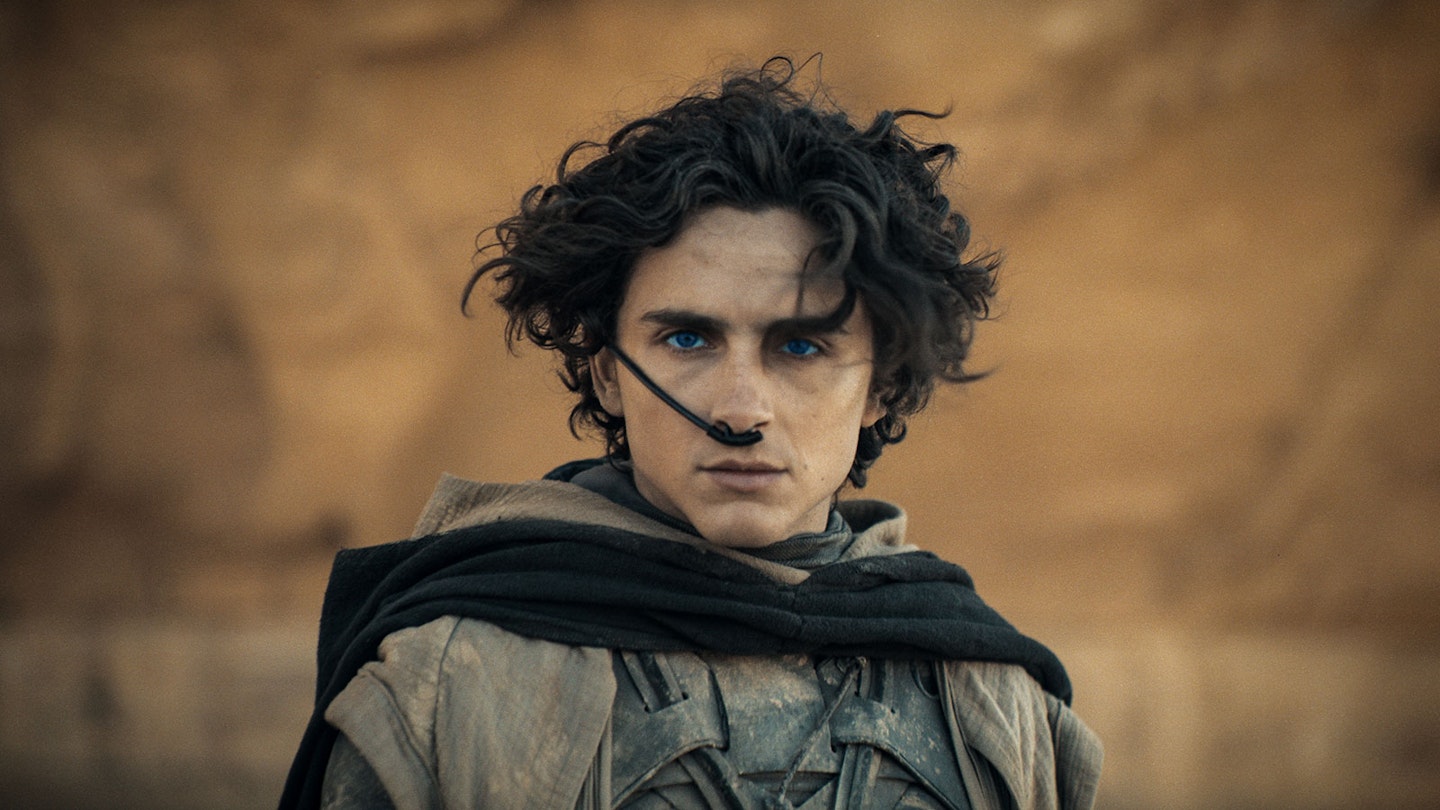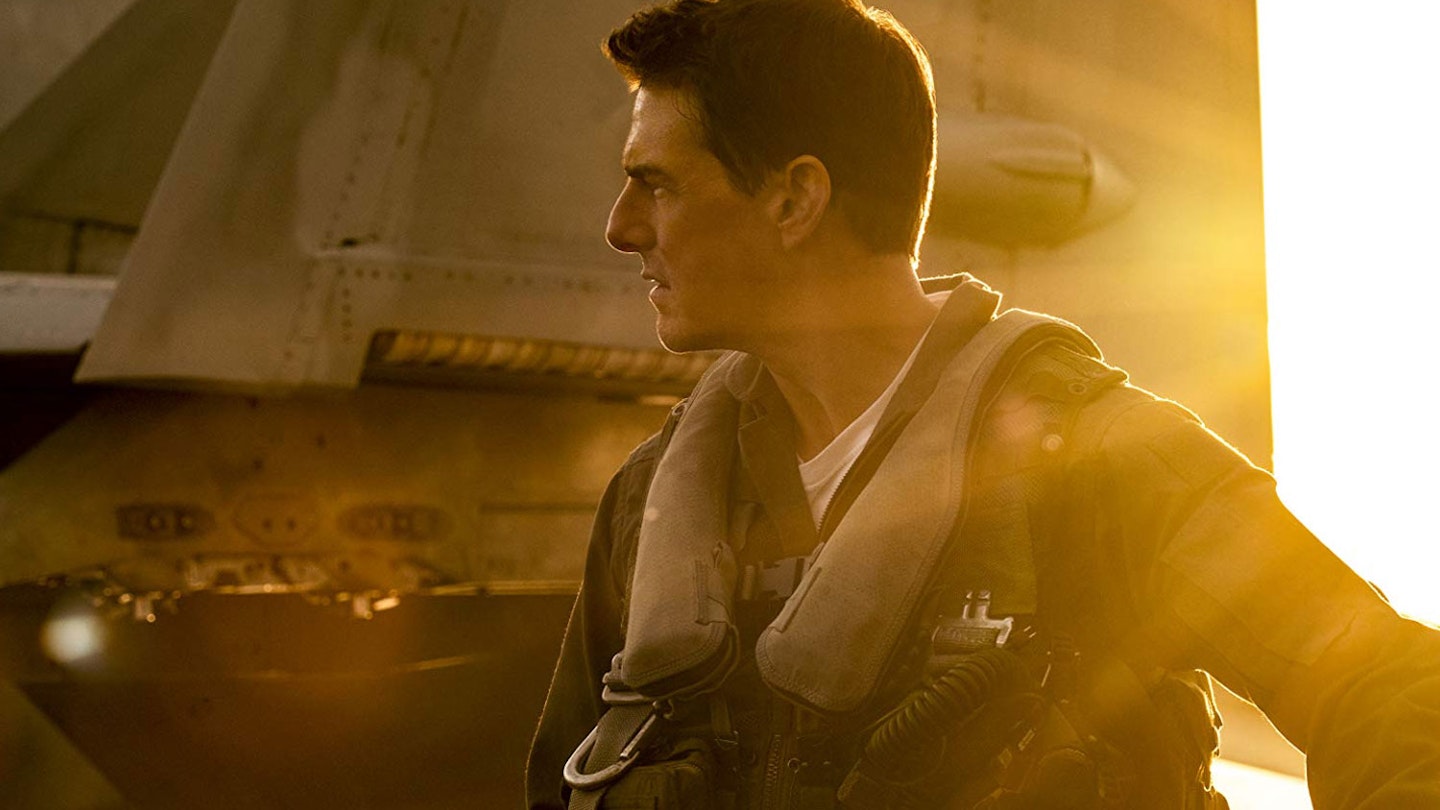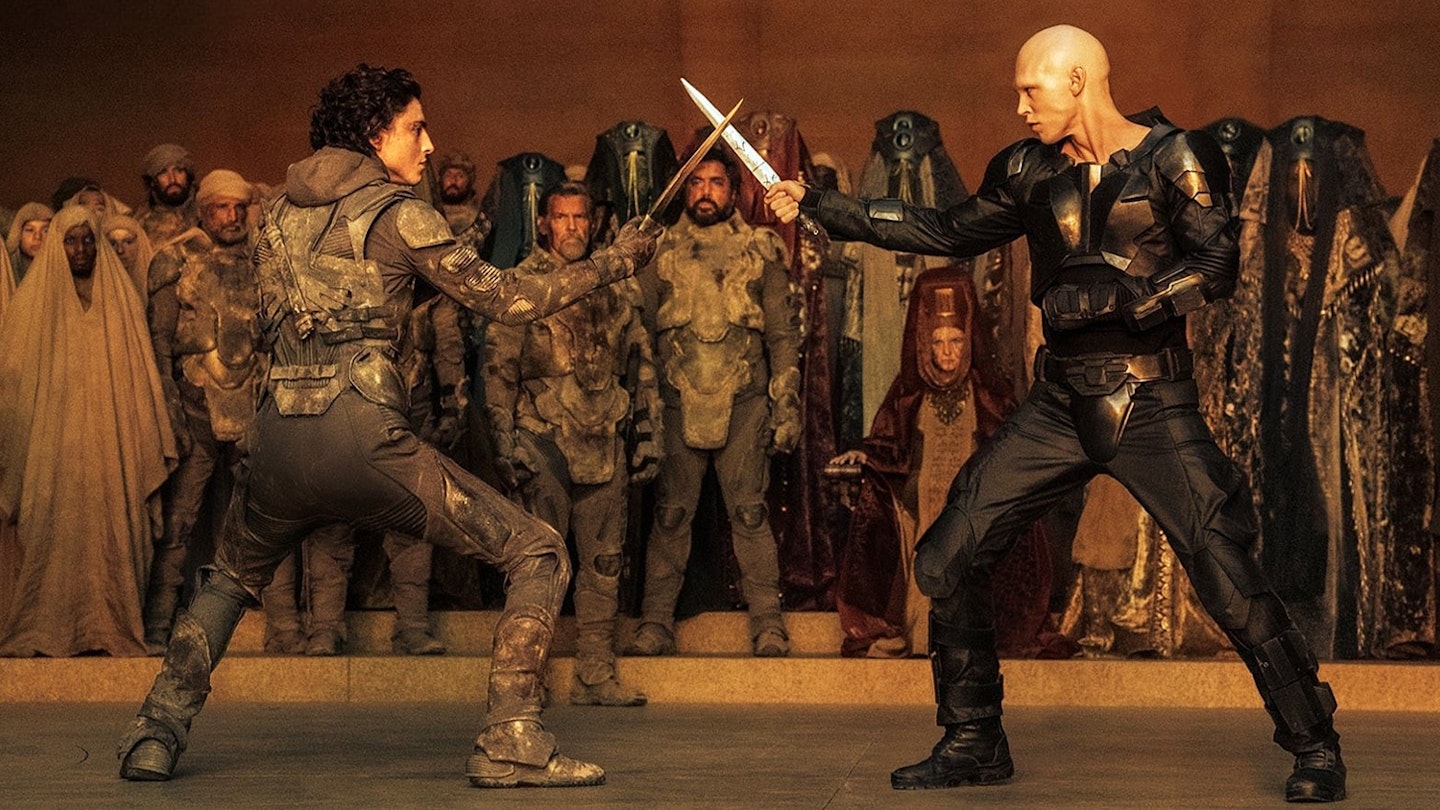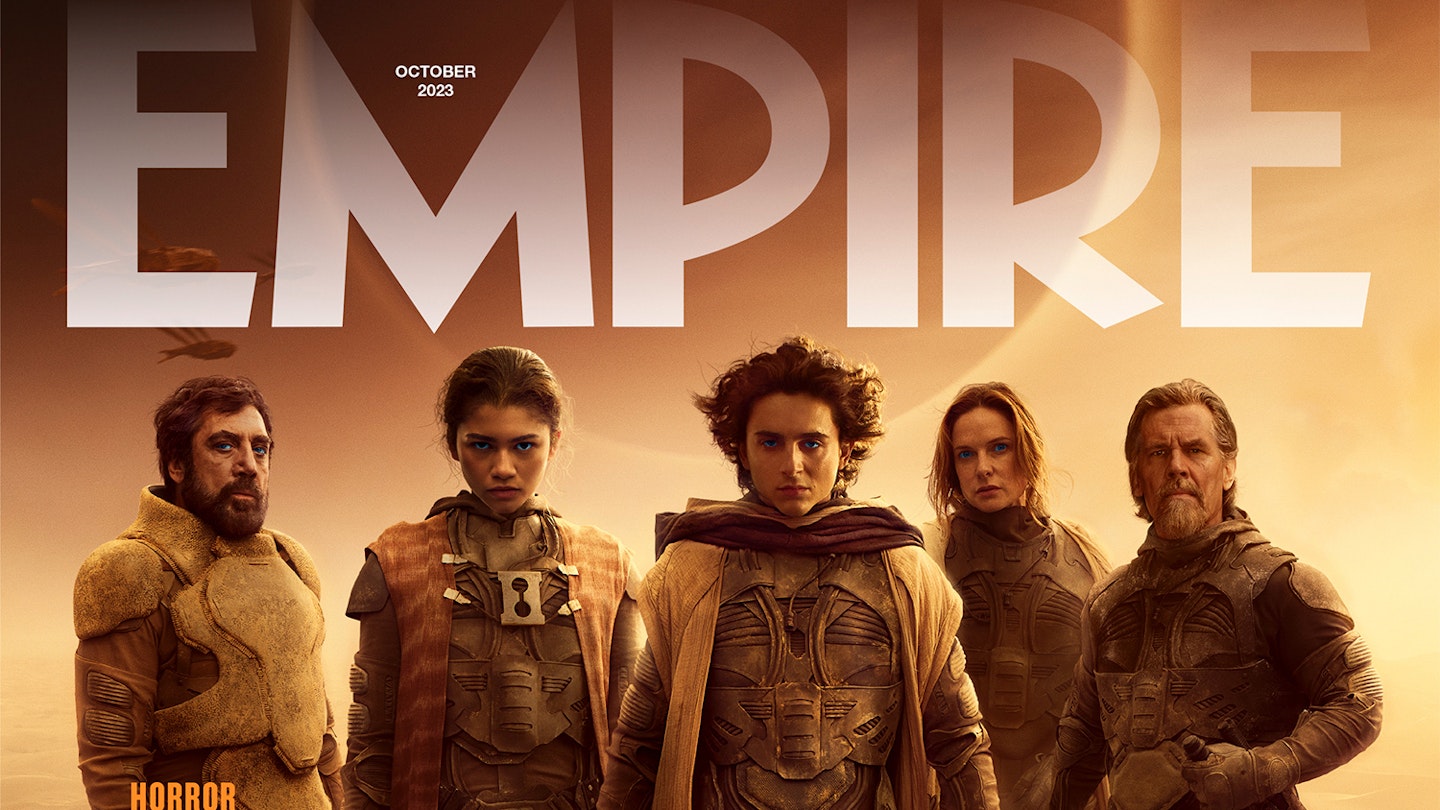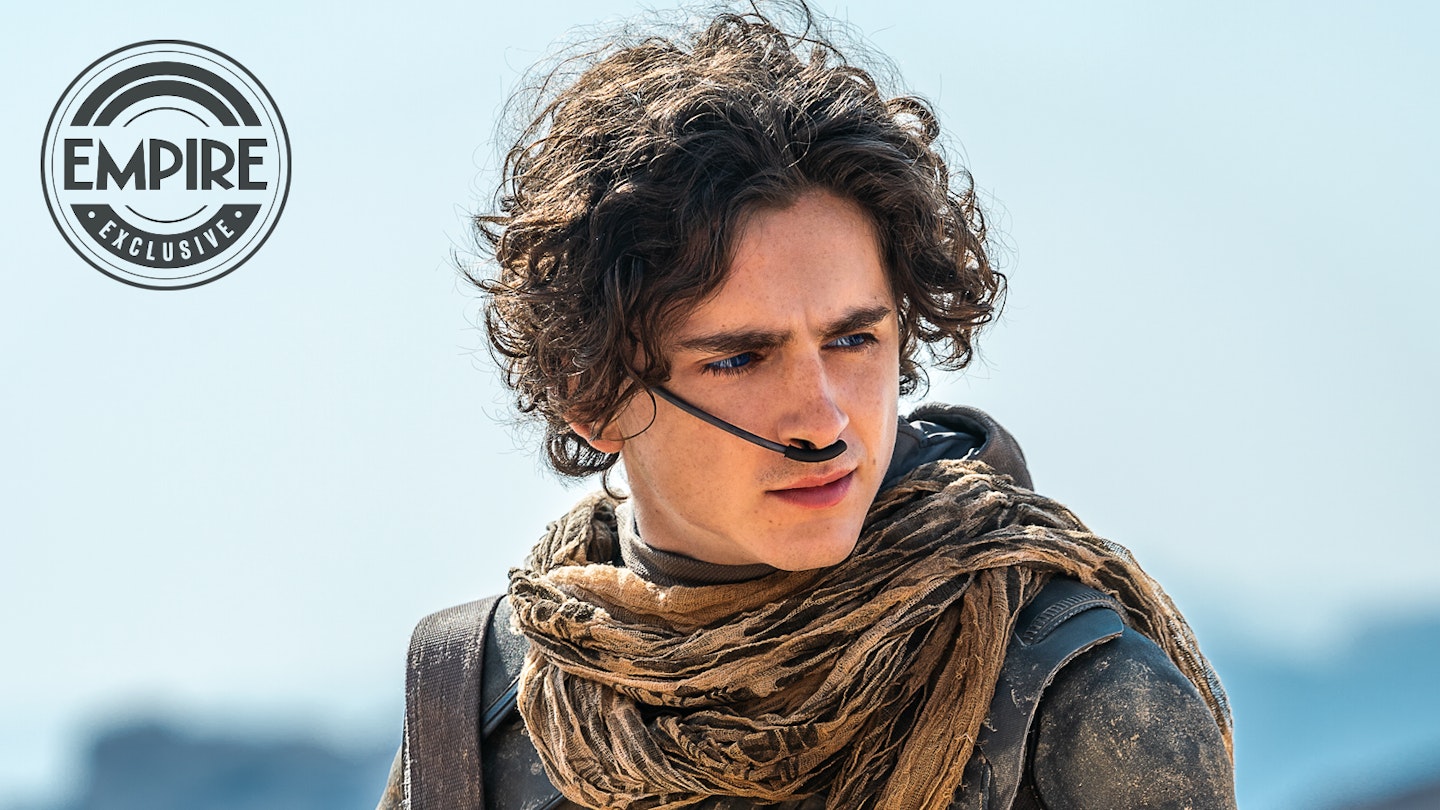In Dune, much is made of dreams. It’s the first word of Denis Villeneuve’s film, spoken in a booming, bone-rattling voiceover before a single production logo has even appeared. It’s prophetic dreams of a blue-eyed girl on the planet Arrakis that drive protagonist Paul Atreides (Timothée Chalamet) towards his mysterious future. Villeneuve himself has often named Dune as his dream project. And for science-fiction devotees, especially those who have long-worshipped Frank Herbert’s dense tome and waited decades for it to be brought to the screen in a more successful incarnation than previous filmmakers have managed, make no mistake: Villeneuve’s Dune is the adaptation you always dreamed of.
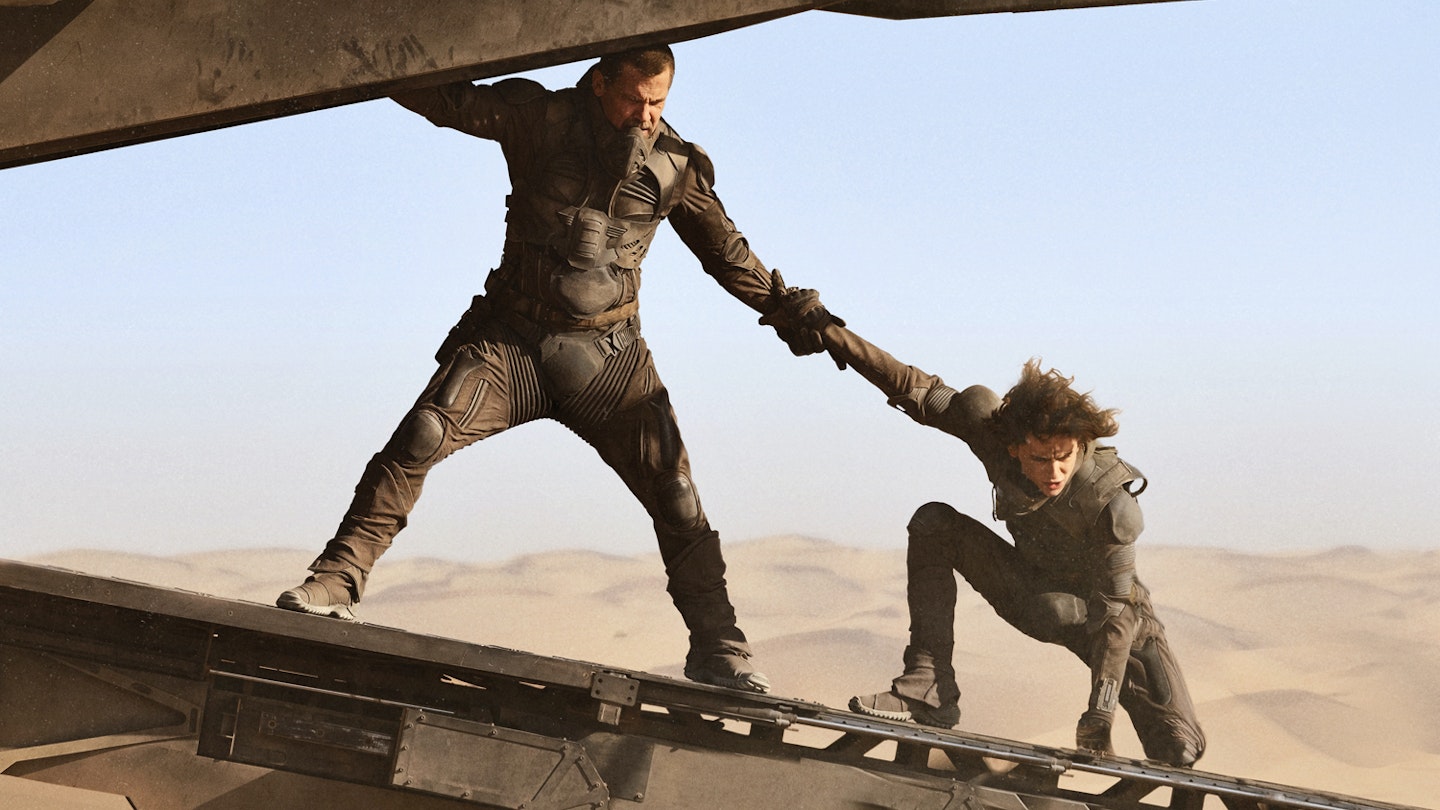
A lot has been written of the complexity of Dune — a 1965 book whose near-impenetrability on the page is legendary, with a story so expansive and mythology so sprawling that even talented filmmakers like Alejandro Jodorowsky (whose version never came to fruition) and David Lynch (who disowned his own 1984 take) stumbled in their attempts to capture it. Notably, many of its images and ideas have instead disseminated into everything from Star Wars to Studio Ghibli’s Nausicaä Of The Valley Of The Wind. Villeneuve’s approach is to split the story in half — Dune is actually, by its own title card’s admission, Dune: Part One. It’s a bold gambit — especially since the implied ‘Part Two’ is yet to shoot, and its existence is seemingly predicated on the financial success of this first instalment — but going by everything achieved here, it’s a narratively vital decision. Across a two-and-a-half-hour runtime, Villeneuve luxuriates in establishing Herbert’s vision of a stark galactic empire in which simmering political tensions threaten to boil over, mystical theologies intersect with powerful institutions and industrial interests, and humanity is humbled by the vast power of nature.
Though there’s plenty to establish, Villeneuve — who also co-writes along with Jon Spaihts and Eric Roth — makes surprisingly light work of it all. Chiefly, the story concerns House Atreides — one of several dynastic factions co-existing under a grand empire known as the Imperium. Duke Leto Atreides (Oscar Isaac) is tasked by the Emperor to take over the rule of desert planet Arrakis (aka Dune), home of the most valuable substance in the galaxy, Spice. But since the brutal House Harkonnen has successfully overseen the Arrakis operation for 80 years, Duke Leto senses his house’s appointment there is likely a trap. Meanwhile his son Paul is having visions of Fremen girl Chani (Zendaya) — and there are signs he could be a prophesised Chosen One as foretold by the Bene Gesserit, an order of mystic women (of which Paul’s mother, Lady Jessica (Rebecca Ferguson), is one).
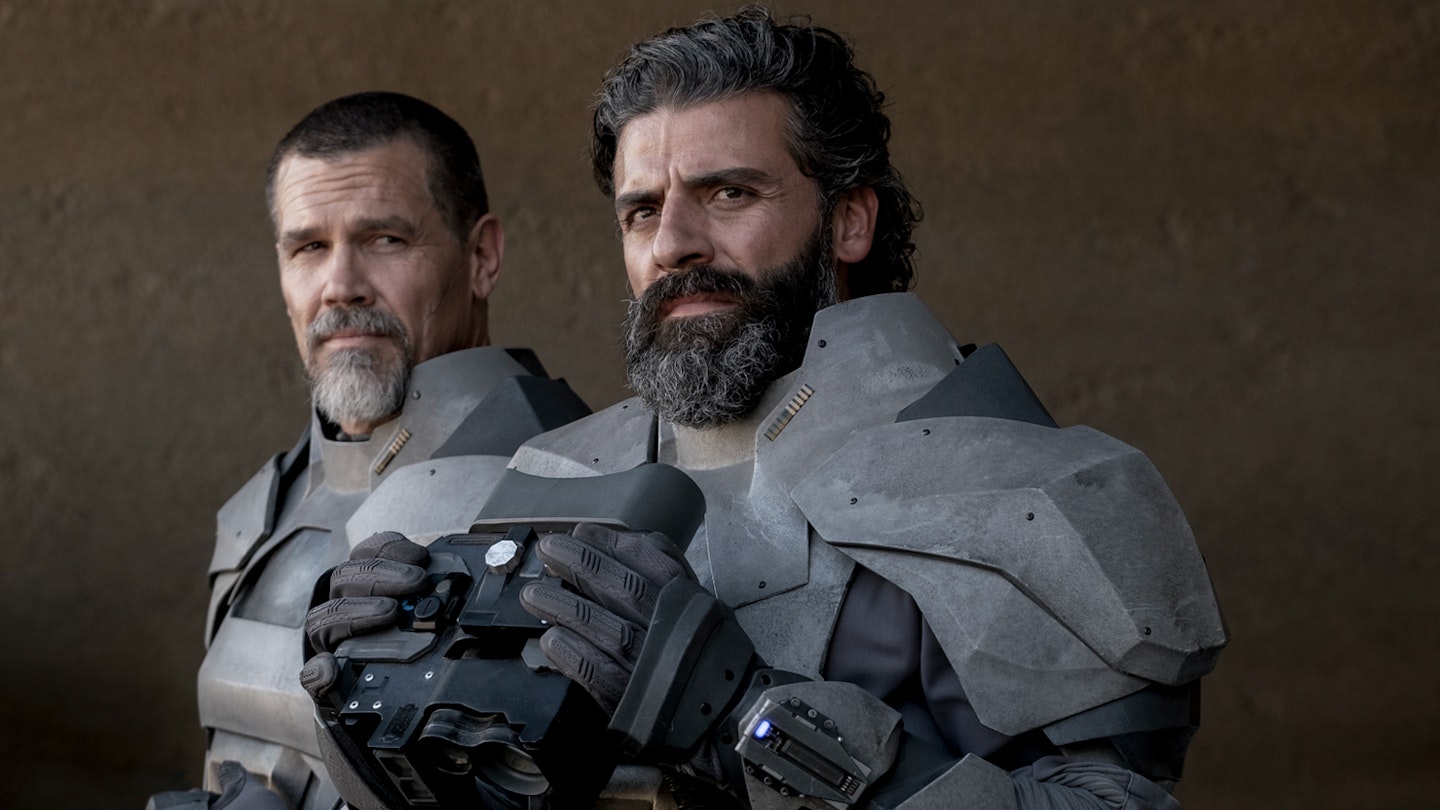
It’s a lot, then — and that’s before you get into the fact that Arrakis also plays host to colossal burrowing sandworms that make crossing the sun-scorched desert a nigh-on impossible proposition. Perhaps it’s the way Villeneuve’s film introduces each faction and world with such precision, or that in a post-Game Of Thrones world mainstream audiences are more primed for this kind of grand-sweep storytelling than ever before — but Dune is never as formidable as it threatens to be. Much of it is in the astonishing production design, which clearly delineates every world and faction with its own visual identity — the cool palette of House Atreides’ oceanic planet Caladan is totally distinct from the gothic caverns of shadowy Harkonnen homeworld Giedi Prime, and a world away from the sizzling expanse of Arrakis. Villeneuve is a visionary filmmaker, and he lets his images do as much of the narrative heavy-lifting as the dialogue
When you finally get to Arrakis, the overriding emotion _Dune_ evokes really kicks in: a near-constant jaw-on-the-floor awe.
If the Part One approach means Dune tells essentially half of a story, it allows that half all the breathing room it requires. After a dreamy opening reel in which Chani establishes the story’s anti-colonialist themes in voiceover (“Who will our next oppressors be?” she wonders as the Harkonnen armies depart Arrakis), we spend a comfortable amount of time on Caladan, establishing Duke Leto’s sense of duty and suspicions of imminent betrayal; Paul’s anxiety over his doom-laden dreams, his skill as a fighter under the tutelage of the grizzled Gurney Halleck (Josh Brolin), and his camaraderie with sword-swinging warrior Duncan Idaho (Jason Momoa); and Lady Jessica’s potentially conflicting responsibilities as Paul’s mother and a member of the Bene Gesserit order. The pacing is perfect — Villeneuve makes you wait just long enough, so when the action moves to Arrakis you’re just as eager to venture into the desert as Paul.
When you finally get there, the overriding emotion Dune evokes really kicks in: a near-constant jaw-on-the-floor awe. The sense of scale conjured up is, from moment to moment, frequently astonishing. Cinematographer Greig Fraser — who previously delivered the mind-blowing planet-explosion shots in Rogue One: A Star Wars Story — keeps the camerawork largely static and stately, with lingering wide shots that let you drink in all the detail of the gorgeous sets, and bask in the vistas of Villeneuve’s galactic visions. In one shot, the transport ships bound for Arrakis are of ant-like insignificance against the deep expanse of space. At ground-level, they’re colossal. The visual vastness is matched by a Hans Zimmer score that is, to use a technical term, full-Zimmer —with howling human voices, clattering drums sure to make any cinema seat rattle like a 4DX chair, and inexplicable space-bagpipes.
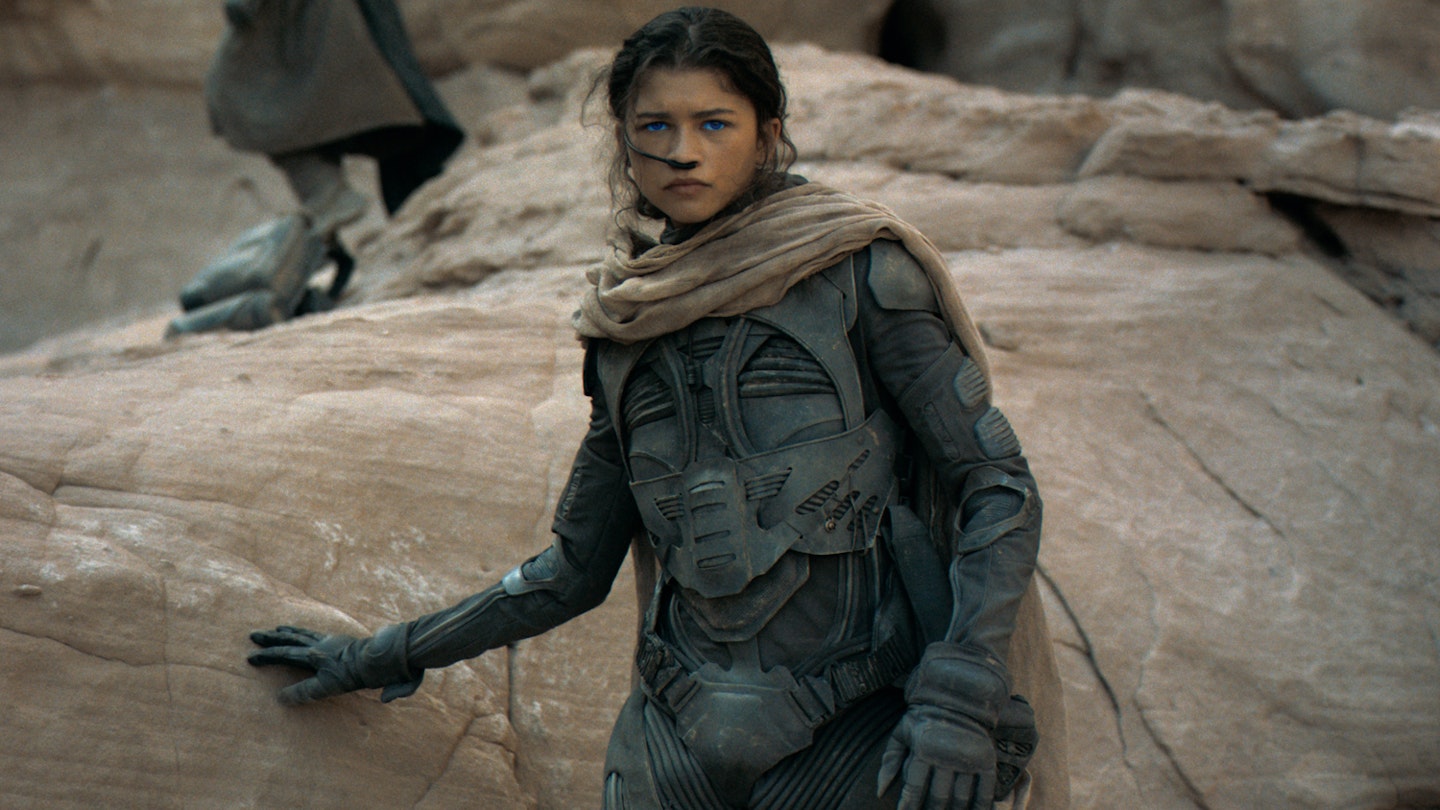
This is blockbuster filmmaking in the Christopher Nolan mould — smart, propulsive, and really big. But more than any one Nolan film in particular, Dune feels most reminiscent of The Lord Of The Rings: The Fellowship Of The Ring. Like Fellowship, it’s merely the opening part of a story, but manages to feel like a masterwork in its own right. Like Fellowship, it establishes a sprawling and complex world that feels both familiar and utterly new with the lightest of touches. And like Fellowship, its biggest set-piece comes just after the midway point — after 90 minutes of setting up dominos, Villeneuve finally lets them clatter into one another in spectacular style, scattering the characters to the winds as the final hour becomes an all-out survival movie.
Among the uniformly excellent performances, Timothée Chalamet holds his own in his first blockbuster leading role. In a film this size, there’s every chance he’d get swallowed up by the sandworm-like enormity of everything around him — but even against the colossal spectacle, the magnetic charisma he displayed in smaller indie fare shines through.
With Villeneuve’s focus primarily on the turning tides of revolution, the emotional strings don’t tug as strongly on a human level. But the film does spend plenty of time bedding in with the Atreides and their inner circle – Ferguson gives a wrenching performance as Paul faces a bone-crunching test in an early reel, and Momoa and Brolin in particular bring moments of life and lightness to the most typically adventure-story roles of the ensemble.
While Dune already feels like an astonishing achievement, there’s no getting around the fact that it’s only half the story – and unlike Fellowship, there’s no guarantee of a Two Towers next year. For now, we have more proof that Denis Villeneuve is a masterful filmmaker, particularly in science-fiction — once again conjuring the hypnotic, glacial heft of Blade Runner 2049 and the truly alien visual qualities of Arrival. But to quote Cloud Atlas (another huge, ambitious sci-fi novel adaptation — one which failed to set the box office alight nearly a decade ago), “a half-finished book is, after all, a half-finished love affair”. To be left dangling without ‘Dune: Part Two’ would be a particular heartbreak. Here’s hoping we won’t only be seeing it in our dreams.
